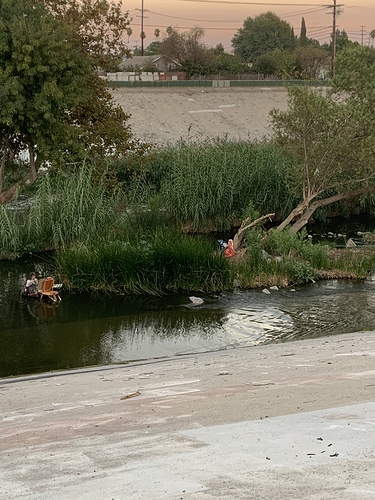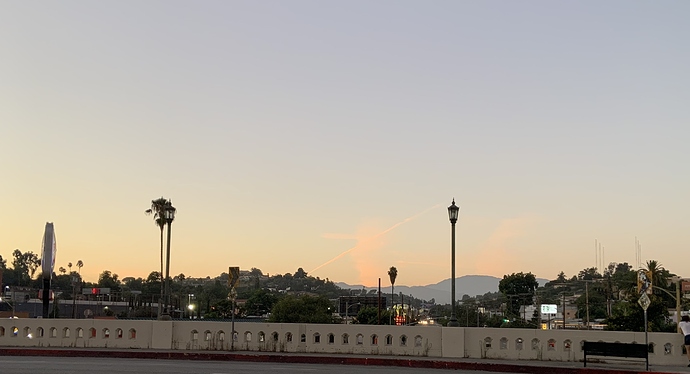Interview with Sarah Olimpia Scott
Back in June, Fintan and Rudolfs revealed their personalities to the wider Radicle Community in the form of an interview. Reading their exchange inspired me to learn more about Sarah and her life on the West-Coast.
Image credit: Sarah Olimpia Scott
Sarah - a core contributor to the Radicle open source project - and I discussed her interests in community-building, contributing to open-source and gardening. Her previous work at Artsy was the starting point of our conversation. Artsy is an online platform for discovering, buying and selling art. I used this software regularly when working for commercial art galleries. Considering my background in curating contemporary art, this overlap spiked my interest. I was keen in discussing potential crossovers between art and coding - but the closest overlap we found was comparing code to poetry.
We spoke while Sarah was on her way to work. Mind-boggling to think that we conversed miles and miles apart from each other, with a nine-hour difference between L.A. and Berlin. I was ending my workday, while Sarah was starting hers. I pictured her driving down a sunny, large boulevard lined by palm-trees. A stereotype of L.A. - I know - but she quickly confirmed this was the case. Sarah was headed toward a hilly area called Elysian Park, close to where she rents a desk in an animation studio.
I asked Sarah about her first experience coding, and her reply was frank: “I grew up in the desert north of L.A., and I started coding because I was bored and lonely.” She described a childhood spent either playing in the desert hills (where the most exciting complication was encountering rattlesnakes), or alone on her computer; a hand-me-down from her father who works in the film-technology industry.
My imagination started rolling like a film picturing Sarah playing on the hills in the desert, the effect of speaking on the phone, filling the distance between Sarah and myself with my own imagination.
At an early age she started coding by creating her own Neopets. Neopets is a website on which users can own virtual pets and buy items for their sustenance using a virtual currency. Sarah’s fascination with the game felt similar to my own childhood obsession with Tamagotchis, and recalled the guilt I felt for having neglected these digital pets. Though her own enthusiasm waned recently when she found out it was run by Scientologists.
Her first encounter with an “open source first” approach was whilst working at Artsy - which encouraged her to work in the open and contribute to other community projects. Today, her excitement for open source comes from the possibility of “seeing how the sausage is made”. If someone is trying to learn how to code, they can easily access projects and start contributing. In her opinion, working in an open source environment requires a certain level of empathy, since it is likely that one is working with a larger community. When thinking about the potential of community-building on a global scale, she shares: “it’s very daunting, but also exciting”. Her own experience accounts for this disparity.
Although Sarah was born in São Paulo, Brazil she moved to America at a very early age in the ’90s. “Growing up, I never really thought of the nation-state as having a perfect border in theory or practice. Since moving back here from Berlin though, I find that a lot of folks are just very proud to be American and cling to nationalism as a source of community, which can be really disheartening. I do think that’s changing, especially with younger generations who have grown up across borders and on the internet. We’re not going to be able to solve global problems without at least some kind of global solidarity and coordination.”
Sarah’s contribution to her community starts locally as a member of the local L.A. Tenants Union. Acting in solidarity with those facing unlawful eviction starts locally, this is a community of tenants in L.A. who coordinate rent strikes and help with eviction defense. “This community is very strong because it’s defined by shared socioeconomic circumstances” Sarah describes.
She is also a member of a community garden where she cultivates her own vegetables revitalized with worm compost generated in her home: “It’s really nice to be part of something intergenerational and to learn how to grow food together.”
We drew an end to our conversation while she stood on a hill overlooking L.A. surrounded by chirping sounds. She shared the view with me. I am sharing it with you. I had the imagery of her garden impregnated as a metaphor for community-building. Sarah’s garden being fertilized by her own vegetable scraps, made me think of the circular nature of community-building, as a balance between giving and taking. Moved by her commitment toward her local community, I thanked Sarah for sharing her story.
Image credit: Sarah Olimpia Scott

